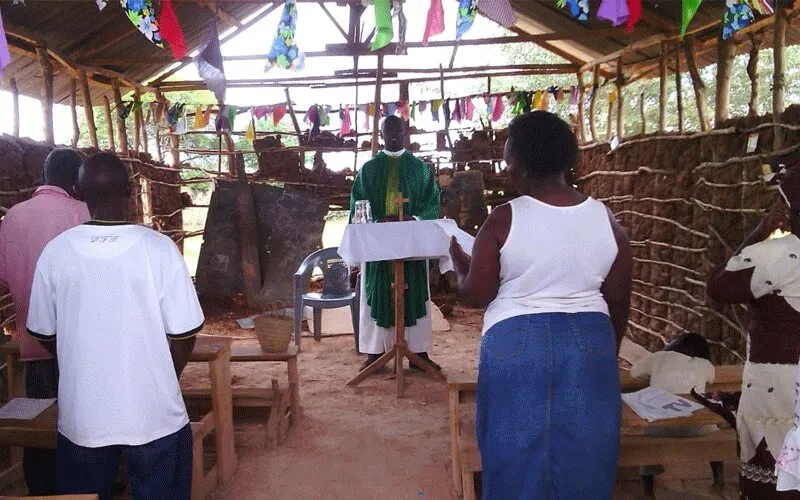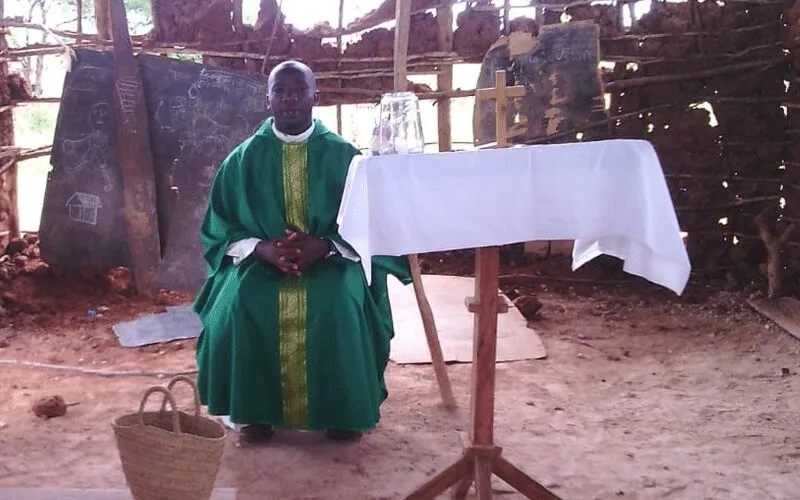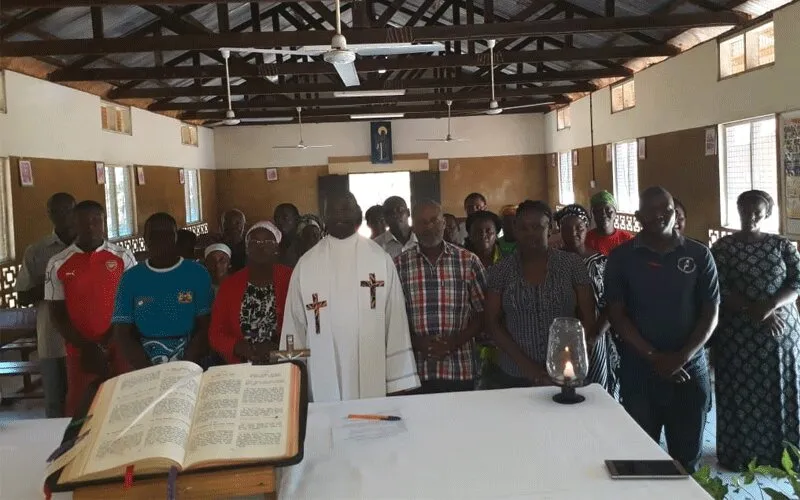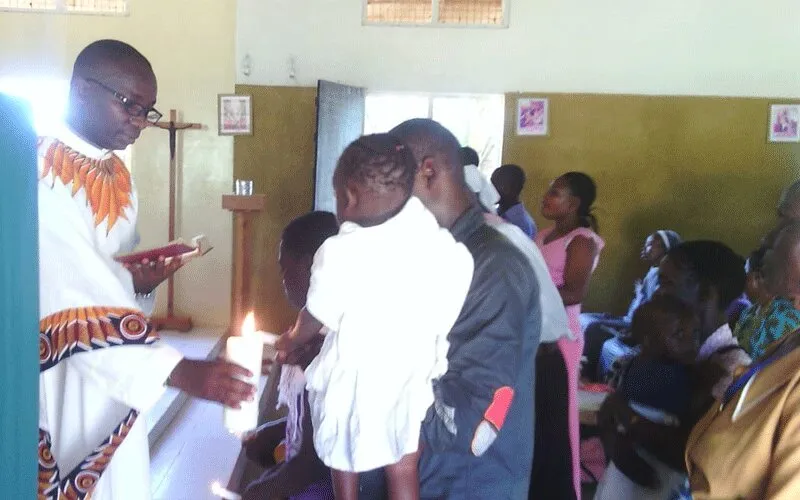
It is this strong attachment to sorcery and violence that has kept many Church-goers at the outstation of St. Catherine of Alexandria Tarasaa Parish from going for the Sacraments that would pave way for their active participation in the Holy Eucharist, including Penance and Matrimony.
Last month (October), however, marked Fr. Kinoti’s breakthrough in his evangelization when a couple wedded in Church and became the first Christians ever at the Tarasaa’s outstation to receive Holy Communion.
The 36-year-old Cleric describes the incident as the highlight of his Priesthood.

(Story continues below)
“It was a very fulfilling experience for me. At that moment, I felt that it was the moment for me to go away,” he says.
It is even more fulfilling for Fr. Kinoti who is already instructing Catechumens at the outstation.
The Catechumens, he says, will hopefully keep their sacramental life alive. The problem, he says, is that the young ones follow in the footsteps of their elders and may stop receiving Holy Communion when they see their parents not partaking in the Sacraments of the Church.

Without a catechist, the Priest instructs the Catechumens single-handedly at a Parish where it is difficult to recruit a student catechist.
According to Fr. Kinoti, there are two Fidei Donum Priests in the Catholic Diocese of Malindi which is a target for primary evangelization in Kenya. The Kenyan Cleric who doubles as the Chairman of Fidei Donum Priests in Kenya further says that not all parishes in Malindi Diocese, which covers Kilifi, Tana River and Lamu Counties are hardship areas.
Parishes in Tana River and Lamu Counties are the most difficult places for evangelization with Lamu having only one Parish to serve all the Islanders.

Most of the inhabitants of Tana River County are Muslims. Many others are Protestants while only a few are Catholics. Fr. Kinoti partly attributes this to the fact that Malindi Diocese, established in 2000, is one of the youngest Catholic Dioceses in Kenya.
Fr. Kinoti who has baptized many Muslims into the Catholic Church says that there is a lot of hostility against the Church in the Muslim-dominated Kenyan County.
“The locals don’t like it when one of their own converts to Catholicism. They want to remain a totally Muslim territory,” he says, adding that Protestants are hostile to Catholics as well.
“Protestants will not easily sell a piece of land to Catholics for the building of a Church. They think that by constructing a Church, the Catholic Church is slowly conquering and so they’d rather sell land towards construction of a school or a hospital,” he says.

Tana River is also one of the poorest regions in Kenya where the people rely solely on the sale of charcoal. With the government crackdown on the business, the people now rely on relief food and can hardly keep children in school.
Working in such a hardship place as a Fidei Donum Priest is challenging especially when the Priest does not get support, Fr. Kinoti says.
Narrating his own tough ordeal as a missionary, the Kenyan Priest says, “There is a time I thought I was going to starve and when I went back to my Bishop in Meru, he told me that the Bishop in Malindi was supposed to take care of me.”
He adds, “A Fidei Donum Priest is always tossed here and there between the sending Bishop and the receiving Bishop, each unwilling to support the Priest financially.”

Luckily, about 15 Fidei Donum Priests working in the Kenyan Dioceses of Malindi, Garissa, Marsabit, Lodwar, Nakuru (areas of East and West Pokot) as well as Ngong have started getting Mass stipends, which is donated through the office of the Pontifical Mission Societies (PMS) under the Kenya Conference of Catholic Bishops (KCCB).
“This year, we got a stipend once through the efforts of Fr. Bonaventure Luchidio who goes around rallying for funds to support us. We hope that the Bishops where we are sent will be more supportive of the work we do in their Dioceses,” Fr. Kinoti shares with ACI Africa.
The Cleric urges more Priests to embrace the life of Fidei Donum which he says offers the best missionary experience.

He also calls for a change in the mindset of the Christians who have long held on the mentality of receiving gifts from Missionaries.
“For a long time in Africa, we believed that the work of a missionary was to give, to construct Churches, Schools and Hospitals while ours was just to receive. Things are different now and it is upon us to build our own Church,” says Fr. Kinoti.
He adds, “I believe the biggest challenges that Fidei Donum Priests face stem from the fact that they are Africans with nothing (material) to offer. They come with nothing to entice the locals into Christianity and therefore face a hard time being accepted.”

At St. Catherine of Alexandria Tarasaa Parish, the Cleric has introduced a long-term Church construction project that he says will see everyone participate without help from the outside, not even that of politicians.
“Every local member of the Church has been included in the Church construction project. Children have also made pledges and we have already started assembling construction materials,” Fr. Kinoti tells ACI Africa Monday, November 2.
He adds, “I am sure that 20 years from now, the children will be adults and they will look at the Church they built on their own with a lot of satisfaction.”
Agnes Aineah is a Kenyan journalist with a background in digital and newspaper reporting. She holds a Master of Arts in Digital Journalism from the Aga Khan University, Graduate School of Media and Communications and a Bachelor's Degree in Linguistics, Media and Communications from Kenya's Moi University. Agnes currently serves as a journalist for ACI Africa.



















